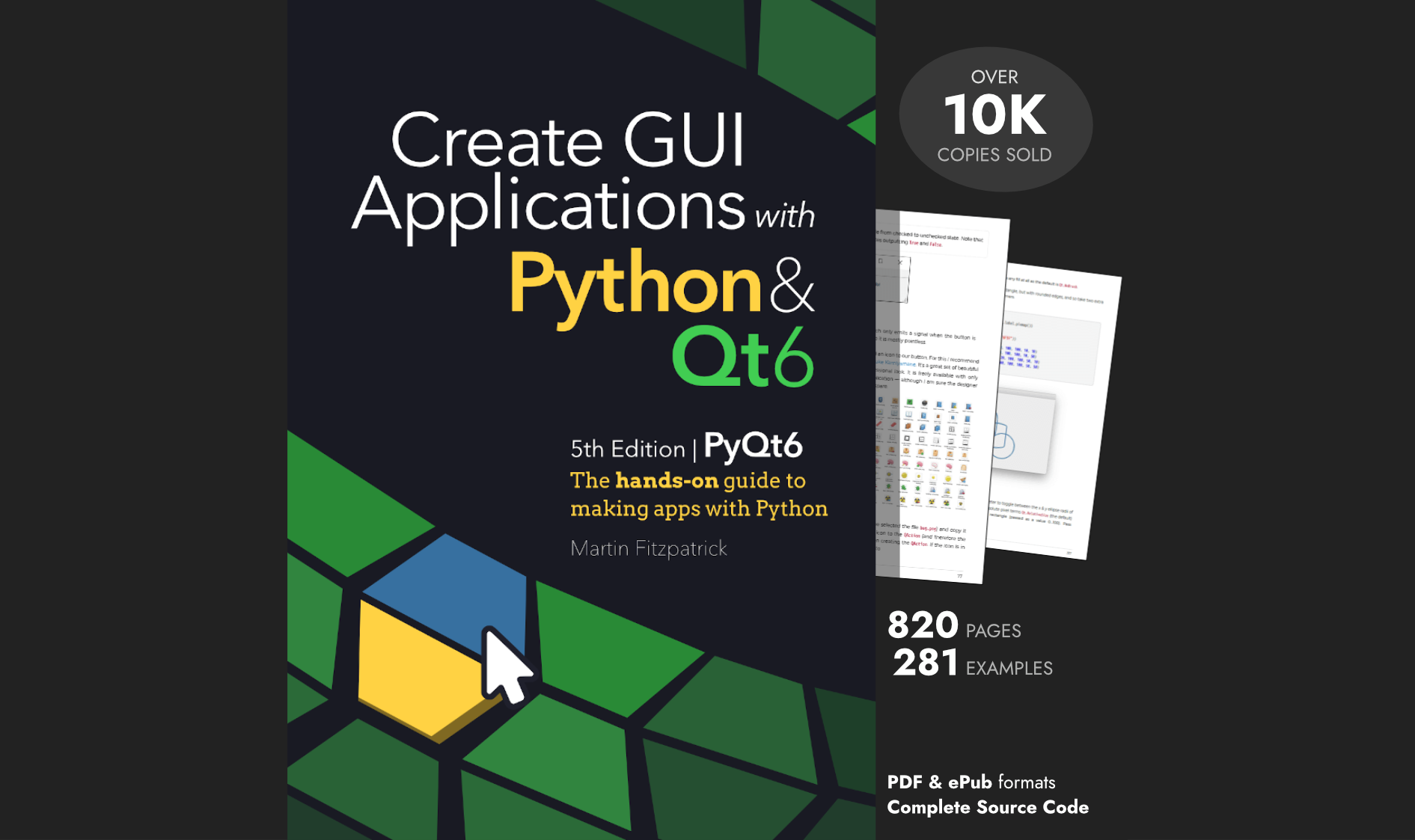9buzadani6114 | 2021-03-05 19:07:10 UTC | #1
Hi! I've just read the first tutorial, and it was great, but the thing I don't understand is how these lines of code work?
app = QApplication(sys.argv)
window = MainWindow("Hello, World!")
window.show()
app.exec_()
(The only modification I made is that the MainWindow class now accepts a text argument that will be shown by label)
Now by the first line we defined an instance of QApplication, and then in the 4th line we told our program to show the window class, but show it on what?(, we haven't specified any arguments for .show())
Is it a built-in workflow in PyQt5 that recognises a QApplication instance and shows anything that comes after onto that QApp?
martin | 2021-03-10 14:48:13 UTC | #2
Hi @9buzadani6114 welcome to the forum!
This can be a little tricky to understand if you're new to Python classes or event-based programming. I've modified the code below, adding some comments and pauses to show what is happening on each line. The window is replaced with a QPushButton which should show some text (any widget without a parent is a window in Qt).
Create GUI Applications with Python & Qt5 by Martin Fitzpatrick — (PyQt5 Edition) The hands-on guide to making apps with Python — Over 10,000 copies sold!
import time
from PyQt5.QtWidgets import QApplication, QPushButton
app = QApplication([]) # Create the QApplication object, set up the Qt event queue
print("Create Window object")
window = QPushButton("Hello, World!") # Create a MainWindow object, store it in window
time.sleep(10)
print("Show")
window.show() # Call .show() on that window object, making the frame visible but the widget is not drawn.
time.sleep(10)
print("Exec")
app.exec_() # Start the Qt event loop, the button widget becomes visible. You can press the button.
The key bit to understand is that until you start the Qt event loop (bottom line) your UI won't do anything. When you create the MainWindow, the object is created -- along with any objects for widgets in the window but is not shown. When you call .show() the "window frame" will become visible but the widget itself will not be drawn, and interactions will not be handled.
Any changes to widgets and interactions you have with the window are put onto Qt's event queue. Qt runs an event loop which picks these events off the queue and does something with them -- for example, re-drawing a window when something changes. The event loop is started by app.exec_() so none of these things will happen until you reach that line.
PyQt/PySide 1:1 Coaching with Martin Fitzpatrick — Get one on one help with your Python GUI projects. Working together with you I'll identify issues and suggest fixes, from bugs and usability to architecture and maintainability.
Hope that clears it up for you?

